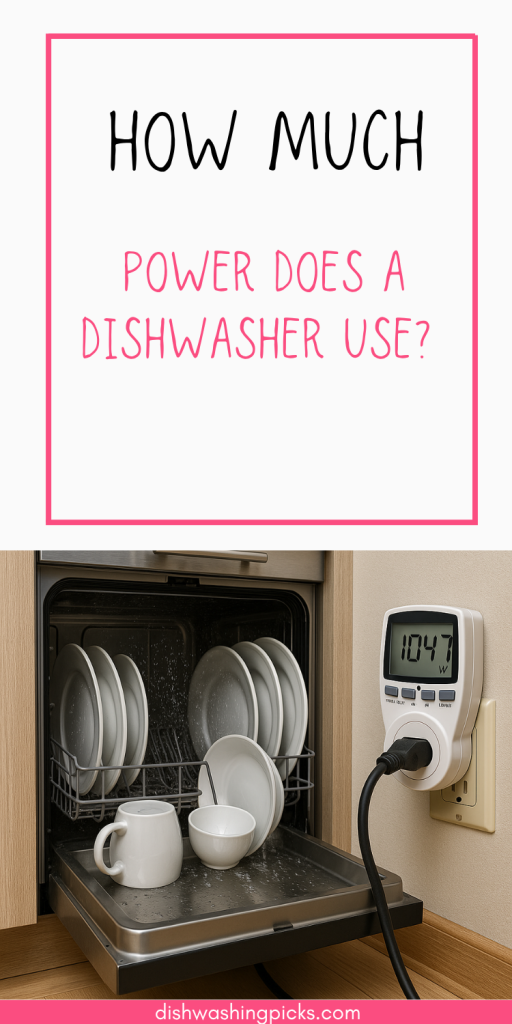
Okay, so you’ve been wondering how much power that clunky but oh-so-handy dishwasher in your kitchen is actually slurping up every time it hums to life, right? Totally fair question. Especially if you’re trying to keep those utility bills from sneaking up on you like a Netflix subscription you forgot about.
Let’s dive into it—and don’t worry, I’ll keep this chill and jargon-free.
First off… Is a Dishwasher Really That Power-Hungry?
You might be thinking, “Well, it heats water, sprays it around, and dries everything. That’s gotta cost me a fortune in electricity, right?”
Honestly? Not really.
Most modern dishwashers are surprisingly efficient. They’re kinda like that one friend who gets everything done but never makes a fuss about it. A typical dishwasher uses somewhere between 1.2 to 1.5 kilowatt-hours (kWh) of electricity per load. That’s like… less than your microwave if you went on a popcorn-making binge.
Now, if you’re running it once a day, that’s about 36 to 45 kWh per month, give or take. Depending on where you live and what your electric rates are, you’re looking at maybe $4 to $8 a month. Not too wild, right?
But Wait—What Factors Mess With That Number?
Glad you asked. Because like everything else in life (including relationships and pizza toppings), there are variables.
Here’s what can make your dishwasher slurp more or less power:
- Water temperature settings – If your dishwasher has to heat the water itself (instead of your home water heater doing the work), that’s more energy.
- Drying method – Some dishwashers use heat-drying (think blow dryer for dishes), while others use air drying. Heat drying = more power.
- Age of the dishwasher – Older dishwashers? Power guzzlers. Newer Energy Star models? Much friendlier on your bill.
- Cycles and settings – That “heavy duty” mode? Yeah, it’s not messing around. Short eco cycle? Much lighter on the juice.
- Pre-rinsing – Yep, rinsing your dishes with hot water before loading them could be secretly jacking up your total energy use more than the machine itself.
Okay… Is It Cheaper to Wash by Hand?
Ah, the age-old debate. Let’s settle this right now.
If you’re hand-washing using hot water and leaving the tap running? You might be using way more energy and water than your dishwasher ever would. Especially if you’re the kind of person who rinses, scrubs, rinses again, and uses more bubbles than a toddler in a bathtub.
Modern dishwashers, especially efficient ones, use less water and energy per dish than hand-washing in most cases. So unless you’re some kind of water-saving ninja, your dishwasher’s probably the winner here.
Tips to Keep Your Dishwasher Energy-Smart
Wanna keep it running lean and clean? Try these:
- Use the eco mode – Most dishwashers have it. It’s slower but uses less power.
- Run it full – Don’t hit “start” for five plates and a spoon.
- Air dry when possible – Skip the heat dry. Just crack the door open after the cycle.
- Use off-peak hours – Some energy companies charge less at night. Check yours.
Final Thoughts
So, to answer your question:
Dishwashers use a surprisingly small amount of power, especially the newer models. Like, “don’t feel guilty about running it” small.
If you’re worried about energy use, focus more on how you use it than if you use it. Load it right, skip the rinse, and embrace eco mode.
And hey—next time someone tries to guilt you into hand-washing after dinner, hit them with:
“Actually, my dishwasher uses less water and power than scrubbing these by hand. So, I’m saving the planet.”
Boom. Argument over.
